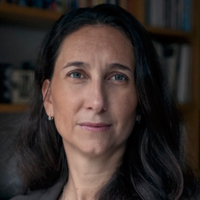Bio
Giulia Mascagni is Adjunct Professor at SAIS Europe
Executive Director, International Centre for Taxation and Development (ICTD)
Research Fellow, Institute for Development Studies, Brighton
Giulia Mascagni is Executive Director of the International Centre for Taxation and Development (ICTD) and Research Fellow at the Institute for Development Studies (IDS). Professor Mascagni is a development economist, holding a PhD in Economics from the University of Sussex and specializing in public finance in low-income countries. For over ten years, she has been engaged in research and policy advisory work, primarily in Ethiopia and Rwanda. Her main area of research is tax policy and administration in low-income countries, but she also has broader research interests in public finance, evaluation of public policy and aid effectiveness.
Previously she worked as Associate Economic Affairs Officer at the UN Economic Commission for Africa, as an independent consultant for ITAD, the World Bank, the Overseas Development Institute, and as Adviser and Trainee at the European Commission. She has field experience in Ethiopia, Rwanda, and Mozambique, amongst others. In Ethiopia she was Resident Researcher at the Ethiopian Development Research Institute in Addis Ababa and she advised the Government of Ethiopia on tax reform. In Rwanda, Giulia led a set of large-scale field experiments aimed to understand the determinants of tax compliance, and she continues to work on impact evaluations of tax policies. She is also Research Advisor to the Rwanda Revenue Authority, a member of TADAT’s Technical Advisory Group, and a Research Associate of the Institute of Fiscal Studies (UK).
Courses
- Theories and Models of Economic Development
This course provides an introduction to Development Economics, aiming to familiarize students with key economic concepts, theories and models underlying the basic process of economic growth and development. It takes an intuitive and non-technical approach, focused on the key concepts and arguments around economic growth and development, rather than on the more formal and technical details of econometric or theoretical models. The course will explore the big questions and challenges that affect the majority of the world’s population, living in lower-income countries, such as: 1) Why do some countries grow more than others? 2) What are the root causes of raising inequality and what can be done about it? 3) Where can countries raise the revenue needed to fund their development goals? 4) How do people live on less than 2 dollars a day? 5) What can international aid to help countries develop, and does it work? The course takes a practical angle in showing how the relevant theories and models apply in the real world, based on empirical evidence.
